Module 8 Choosing presents>Unit 3 Language in use.
文档属性
| 名称 | Module 8 Choosing presents>Unit 3 Language in use. |

|
|
| 格式 | zip | ||
| 文件大小 | 5.2MB | ||
| 资源类型 | 教案 | ||
| 版本资源 | 外研版 | ||
| 科目 | 英语 | ||
| 更新时间 | 2015-01-17 00:00:00 | ||
图片预览



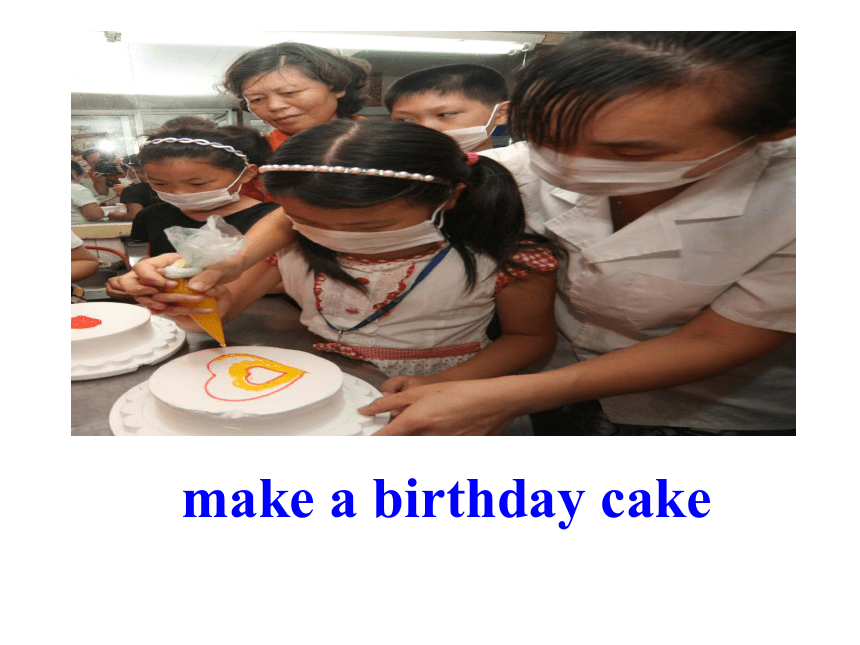
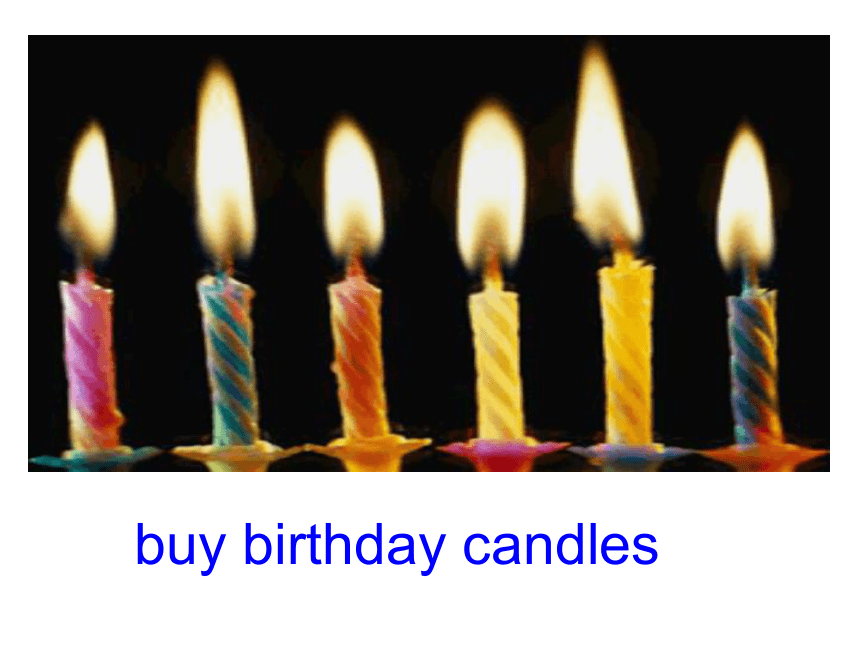
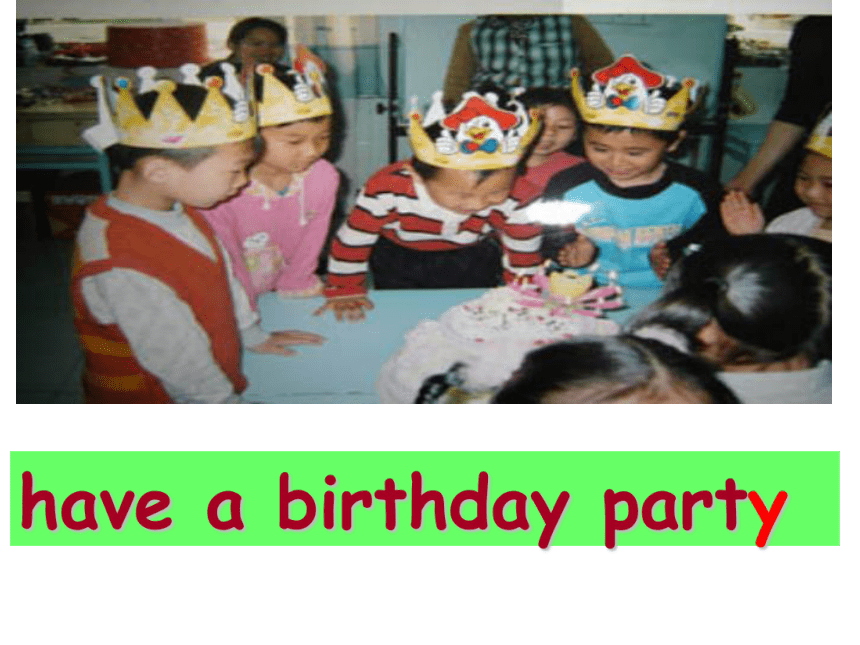



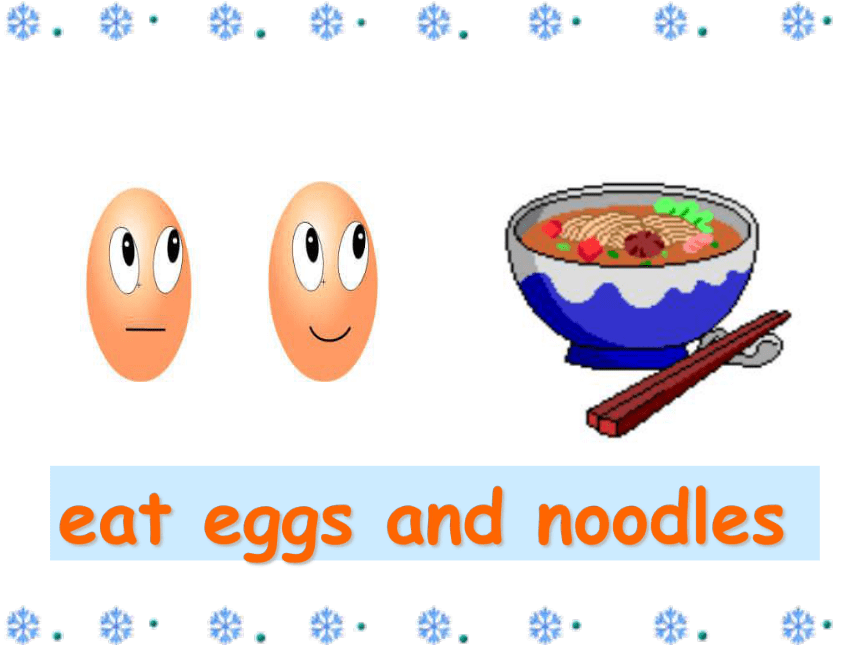
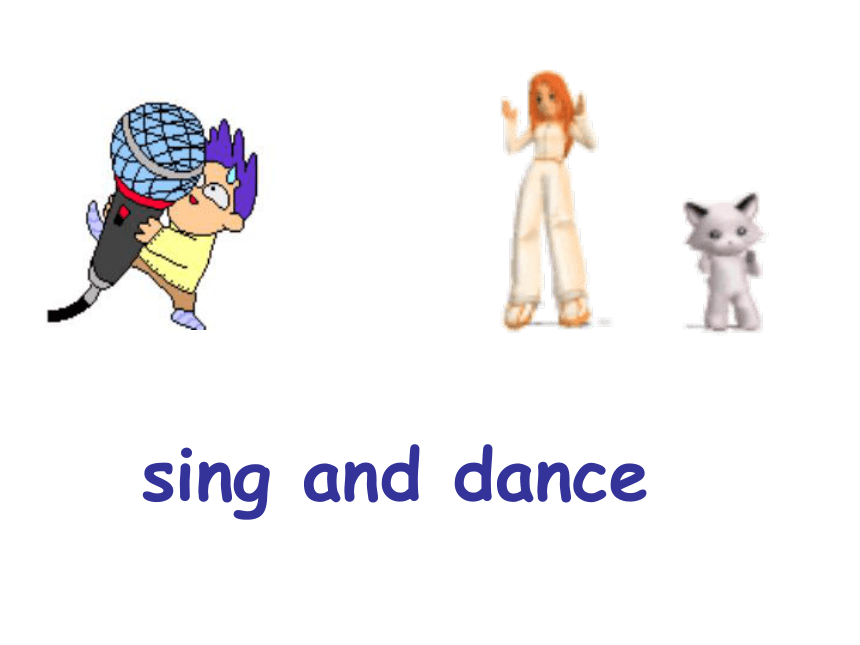

文档简介
课件57张PPT。Unit 3 Language in useModule 8 Choosing presentsbirthdaybuy a birthday cakemake a birthday cakebuy birthday candleshave a birthday partysing Happy Birthday songmake a birthday wisheat a birthday cakeeat eggs and noodles sing and danceplay gamesget birthday cards get birthday presentsbuy a birthday cake 买生日蛋糕
make a birthday cake 做生日蛋糕
buy birthday candles 买生日蜡烛
have a birthday party 举行生日晚会
sing happy birthday song 唱生日歌
make a birthday wish 许生日愿望
eat a birthday cake 吃生日蛋糕
eat eggs and noodles 吃蛋和长寿面
sing and dance 唱歌跳舞
play games 玩游戏
get birthday cards 送生日卡片
get birthday presents 收到生日礼物
a box of chocolatesa CDa cinema ticket电影票a concert ticket 音乐票a footballa magazine
杂志a scarf 围巾a silk dressa T-shirta box of chocolate
a CD
a cinema ticket
a concert ticket
a football
a magazine
a scarf
a silk dress
a T-shirtread a magazinewatch a filmget some exercisego shoppingwatch football matchesgo to a concerta box of chocolates
a cinema / concert ticket
a silk dress
eleven silk scarves
stay healthy
every day
go shopping
go to the cinema
go to concerts / a concert
go to football matches
watch a football match
at weekends
on television
spend … on sth一盒巧克力
一张电影票/音乐会票
一条丝绸裙子
11条丝绸围巾
保持健康
每天
去购物
去看电影
去听音乐会
去看足球赛
看足球赛
在周末
在电视上/通过电视
花费…在…Examples in this module:Daming always gets birthday presents.
She often goes to the cinema.
What do you usually do at a Chinese birthday party?
We sometimes give birthday cards.
My mother never makes a birthday cake. Sum up: 动词第三人称单数的变化规则。① 一般动词后加-s。
② 以s, x, ch, sh,结尾的,后加-es。
③ 以辅音字母+o结尾,一般加-es。
④ 辅音字母+y结尾的单词,变y为i,
再加-es。动词第三人称单数Look at the sentences. Pay attention to the verbs.I/We/You/They usually ____ breakfast.
He/She/It usually ____ breakfast.
1. I ____ (like) birthdays.
2. She always ______ (invite) him to her
parties.
3. We ____ (play) the piano.
4. She ____ (sing).
5. He _____ (come) to my party.eateatslikeinvitesplaysingscomesHe never listens to music.
She always wears school clothes.
It often eats meat.比较下列两组句子We have dinner at school.
You sing very well.
They go to school on Sunday. 当主语为he/she/it/单数名词时,谓语
动词要用第三人称单数形式。其否定句
在谓语动词前加doesn’t (does not),并
把行为动词变为动词原形。
例如:She likes noodles.
她喜欢面条。
She doesn’t like noodles.
她不喜欢面条。(2) 当主语是第三人称单数时,谓语动词
的形式需做以下变化。
① 一般在词尾加-s。help-helps
② 以s, x, ch, sh 结尾, 加-es。wash-washes
③ 以辅音加o结尾,加-es。go-goes
④ 以辅音加y结尾,变y为i,加-es。
study-studies把下列动词变为第三人称单数形式。read
carry
watch
doreadswatchescarriesdoes一般现在时的动词第三人称单数变化形式:
stop use
watch wash
go do
study carry
have
1. 动词+ s
2. 以s, x, ch, sh, 结尾 + es
3. 以辅音字母加y结尾改y为i +es
4.不规则变化has stops uses watches washes goes does studies carrieseat ______________ say ________
wash ____________ fix _________
go ______________ pass ________
carry ____________ fly _________
study ___________ arrive _______
believe _________ check ________
cross ___________ cry __________
cut ____________ develop _______
enjoy ___________ hurt ______
have ___________ be ______
spend __________ eatssayswashesfixesgoespassescarriesfliesstudiesarrivesbelieves checkscrossescriescutsdevelopsenjoyshurtshasisspends用动词的适当形式填空:
My friend _______ (study) in a middle
school.
2. He ____ (go) to bed at nine every day .
3. Miss Green likes _______ (dance).
4. She _______ (teach) us English .
5. Tony often _______ (watch ) TV .
6. There _____ (be) some meat on it.
7. His sister and I ______ (have) lunch .
8. Do you finish _______ (read) the book?
9. He _________ (not like) the bag .
10. Mary _________ (buy) many books. studies goes dancing teaches watches is have reading doesn’t like buys 用括号所给词的一般现在时形式完成下列句子,并把句
子改成否定句。
I ___________(live) in Beijing.
I don’t live in Beijing.
2. He _________(watch) TV every evening.
He doesn’t watch TV every.
3. Li Hong often _________(listen) to the music.
Li Hong doesn’t often listen to the music.
4. She _________ (feel) happy.
She doesn’t feel happy.
5. They ___________ (can) play chess.
They can’t play chess.
6. Lily _________ (be) from England.
Lily isn’t from England. livewatcheslistensfeelscanisAdverbs of frequency tell you how often
things happen. Look at the graph below.频度副词频度副词是表示与次数, 频度有关的副词, 其排列是(由大到小):
always (总是), usually (通常),
often (常常), sometimes (有时),
seldom (不常), never (从不)。1. always是频度最大的词,意为“总是;永远”。
I always remember my first day at school.
我将永远记住我上学的第一天。
usually意为“通常”,即很少例外,频度仅次于always。
What do you usually have for breakfast?
你通常早餐吃什么? 表示频度方面的区别
2. often 意为“经常”,在频度上不如usually那么频繁。
Li Ping often does his homework in the afternoon.
李平经常在下午做作业。
never 从未;永不;决不。
I have never been there. 我从未到过那里。 3. sometimes意为“有时候”,频度比often小,表示动作偶尔发生,间断较大。既可以放在be动词、助动词之后,行为动词之前,也可以放在句首,还可以放在句尾。
I sometimes go to the library.
我有时去图书馆。 Sometimes I read a book in the evening.
我有时在晚上看书。 一般现在时Grammar表示经常或习惯性的动作、现在的状态、客观存在的普遍真理等,常与下列词语
连用:
always / usually / often / sometimes / never
on Sundays / Monday afternoon every day/ week / month / year in the morning / afternoon / evening 我经常在六点半起床。
I often get up at half past six.
2. 他通常在星期六上午打篮球。
He usually plays basketball on Saturday morning.
3. 他们从来不玩电子游戏。
They never play computer games.
4. 我们总是在下午踢足球。
We always play football in the afternoon.always>usually>often>sometimes>seldom(很少)>never等是频度副词,放在助动词,be 动词之后或 行为动词之前。频度副词频度副词在句中习惯上位于be动词之后、
行为动词之前,助动词之后。
She is often late for school.
她上学经常迟到。
He usually goes to bed at about 12.
他通常(午夜)十二点钟睡觉。
When do you usually get up in the
morning? 早上你通常什么时候起床?
He never has anything to do.
他一向无所事事。 频度副词在句中的位置
1. I go to the cinema. (often) ________________________________
2. He plays football on Saturday. (usually) ________________________________I often go to the cinema.
He usually plays football on Saturday. Rewrite the sentences with the words in brackets .3. She gets up at 7:00. (always) ________________________________
4. They eat chocolate at home. (never) ________________________________She always gets up at 7:00.
They never eat chocolate at home.Rewrite the sentence with the words in brackets.1. I go to the cinema. (often)
2. He plays football on Saturday.( usually)
3. She gets up at 7:00 am. ( always)
4. They eat chocolate at home.( never)
I often go to the cinema.He usually plays football on Saturday.She always gets up at 7:00 am. They never eat chocolate at home.
Would you like to go to the playground and play football?
1. ______________ to go to the football match?
2. ______ go to a taijiquan class. Would you like Let’s Complete the sentences with Would you like… or Let’s.
3. ________ stay at home.
4. ______________ to go to the cinema?
It’s Jackie Chan.
5. ______________ to watch TV?
6. ______________ play basketball. Would you like Would you like Let’s Let’s Dear all,
My birthday party is at four o’clock
on Saturday evening at my house.
Would you like to come?
MikeHi Mike,
Thanks. I’d like to come.
See you then.
Jane1. Mike’s birthday party begins
at 4:00 pm.
2. Jane doesn’t want to go to the party.
3. Jack has got a little sister.
4. Jack always does his homework on Saturday afternoon. √××√Read the emails and check (√) the true sentences. 送...作为礼物give … as presentsstay at home
at four o’clock on Saturday afternoon
See you then.
hear from sb
I’m afraid I can’t come.
give … as presents
呆在家里
在星期六下午四点钟
到时见。
收到某人的来信
恐怕我不能来。
送…作为礼物Today is the 5th of March. It’s my b_________. I get a lot of p_________ from my friends and family. They are in nice b_____. My father gives me a yellow box and there is a b____ in it. Because I like reading. Jack, one of my friends, gives me a big box. What’s in it? It’s a box of c_________. I like eating them. My sister gives me a round box. I think it’s a big cake, but it is a
f _______ . I like playing football very much, so I’m
h _______ to have it. My uncle gives me a pair of
s ______, and my aunt gives me a silk shirt. My mother buys CDs for me. I like them very much.
? ?Now my friends are s ______ the song “Happy Birthday to you” to me. irthdayresentsoxesookhocolatesootballappyhoesingingWriting Think of one of your friends. Write a description of him / her. Then choose a present for him / her.Planning a classmate’s birthday partyWork in pairs. Ask and answer questions about each other’s birthday party.
When is your birthday?
Do you always have a birthday party?
What do you usually do at your birthday party?Make a surveyPlan a birthday party for your partner.Choose the time and placeChoose the foodChoose what to do
make a birthday cake 做生日蛋糕
buy birthday candles 买生日蜡烛
have a birthday party 举行生日晚会
sing happy birthday song 唱生日歌
make a birthday wish 许生日愿望
eat a birthday cake 吃生日蛋糕
eat eggs and noodles 吃蛋和长寿面
sing and dance 唱歌跳舞
play games 玩游戏
get birthday cards 送生日卡片
get birthday presents 收到生日礼物
a box of chocolatesa CDa cinema ticket电影票a concert ticket 音乐票a footballa magazine
杂志a scarf 围巾a silk dressa T-shirta box of chocolate
a CD
a cinema ticket
a concert ticket
a football
a magazine
a scarf
a silk dress
a T-shirtread a magazinewatch a filmget some exercisego shoppingwatch football matchesgo to a concerta box of chocolates
a cinema / concert ticket
a silk dress
eleven silk scarves
stay healthy
every day
go shopping
go to the cinema
go to concerts / a concert
go to football matches
watch a football match
at weekends
on television
spend … on sth一盒巧克力
一张电影票/音乐会票
一条丝绸裙子
11条丝绸围巾
保持健康
每天
去购物
去看电影
去听音乐会
去看足球赛
看足球赛
在周末
在电视上/通过电视
花费…在…Examples in this module:Daming always gets birthday presents.
She often goes to the cinema.
What do you usually do at a Chinese birthday party?
We sometimes give birthday cards.
My mother never makes a birthday cake. Sum up: 动词第三人称单数的变化规则。① 一般动词后加-s。
② 以s, x, ch, sh,结尾的,后加-es。
③ 以辅音字母+o结尾,一般加-es。
④ 辅音字母+y结尾的单词,变y为i,
再加-es。动词第三人称单数Look at the sentences. Pay attention to the verbs.I/We/You/They usually ____ breakfast.
He/She/It usually ____ breakfast.
1. I ____ (like) birthdays.
2. She always ______ (invite) him to her
parties.
3. We ____ (play) the piano.
4. She ____ (sing).
5. He _____ (come) to my party.eateatslikeinvitesplaysingscomesHe never listens to music.
She always wears school clothes.
It often eats meat.比较下列两组句子We have dinner at school.
You sing very well.
They go to school on Sunday. 当主语为he/she/it/单数名词时,谓语
动词要用第三人称单数形式。其否定句
在谓语动词前加doesn’t (does not),并
把行为动词变为动词原形。
例如:She likes noodles.
她喜欢面条。
She doesn’t like noodles.
她不喜欢面条。(2) 当主语是第三人称单数时,谓语动词
的形式需做以下变化。
① 一般在词尾加-s。help-helps
② 以s, x, ch, sh 结尾, 加-es。wash-washes
③ 以辅音加o结尾,加-es。go-goes
④ 以辅音加y结尾,变y为i,加-es。
study-studies把下列动词变为第三人称单数形式。read
carry
watch
doreadswatchescarriesdoes一般现在时的动词第三人称单数变化形式:
stop use
watch wash
go do
study carry
have
1. 动词+ s
2. 以s, x, ch, sh, 结尾 + es
3. 以辅音字母加y结尾改y为i +es
4.不规则变化has stops uses watches washes goes does studies carrieseat ______________ say ________
wash ____________ fix _________
go ______________ pass ________
carry ____________ fly _________
study ___________ arrive _______
believe _________ check ________
cross ___________ cry __________
cut ____________ develop _______
enjoy ___________ hurt ______
have ___________ be ______
spend __________ eatssayswashesfixesgoespassescarriesfliesstudiesarrivesbelieves checkscrossescriescutsdevelopsenjoyshurtshasisspends用动词的适当形式填空:
My friend _______ (study) in a middle
school.
2. He ____ (go) to bed at nine every day .
3. Miss Green likes _______ (dance).
4. She _______ (teach) us English .
5. Tony often _______ (watch ) TV .
6. There _____ (be) some meat on it.
7. His sister and I ______ (have) lunch .
8. Do you finish _______ (read) the book?
9. He _________ (not like) the bag .
10. Mary _________ (buy) many books. studies goes dancing teaches watches is have reading doesn’t like buys 用括号所给词的一般现在时形式完成下列句子,并把句
子改成否定句。
I ___________(live) in Beijing.
I don’t live in Beijing.
2. He _________(watch) TV every evening.
He doesn’t watch TV every.
3. Li Hong often _________(listen) to the music.
Li Hong doesn’t often listen to the music.
4. She _________ (feel) happy.
She doesn’t feel happy.
5. They ___________ (can) play chess.
They can’t play chess.
6. Lily _________ (be) from England.
Lily isn’t from England. livewatcheslistensfeelscanisAdverbs of frequency tell you how often
things happen. Look at the graph below.频度副词频度副词是表示与次数, 频度有关的副词, 其排列是(由大到小):
always (总是), usually (通常),
often (常常), sometimes (有时),
seldom (不常), never (从不)。1. always是频度最大的词,意为“总是;永远”。
I always remember my first day at school.
我将永远记住我上学的第一天。
usually意为“通常”,即很少例外,频度仅次于always。
What do you usually have for breakfast?
你通常早餐吃什么? 表示频度方面的区别
2. often 意为“经常”,在频度上不如usually那么频繁。
Li Ping often does his homework in the afternoon.
李平经常在下午做作业。
never 从未;永不;决不。
I have never been there. 我从未到过那里。 3. sometimes意为“有时候”,频度比often小,表示动作偶尔发生,间断较大。既可以放在be动词、助动词之后,行为动词之前,也可以放在句首,还可以放在句尾。
I sometimes go to the library.
我有时去图书馆。 Sometimes I read a book in the evening.
我有时在晚上看书。 一般现在时Grammar表示经常或习惯性的动作、现在的状态、客观存在的普遍真理等,常与下列词语
连用:
always / usually / often / sometimes / never
on Sundays / Monday afternoon every day/ week / month / year in the morning / afternoon / evening 我经常在六点半起床。
I often get up at half past six.
2. 他通常在星期六上午打篮球。
He usually plays basketball on Saturday morning.
3. 他们从来不玩电子游戏。
They never play computer games.
4. 我们总是在下午踢足球。
We always play football in the afternoon.always>usually>often>sometimes>seldom(很少)>never等是频度副词,放在助动词,be 动词之后或 行为动词之前。频度副词频度副词在句中习惯上位于be动词之后、
行为动词之前,助动词之后。
She is often late for school.
她上学经常迟到。
He usually goes to bed at about 12.
他通常(午夜)十二点钟睡觉。
When do you usually get up in the
morning? 早上你通常什么时候起床?
He never has anything to do.
他一向无所事事。 频度副词在句中的位置
1. I go to the cinema. (often) ________________________________
2. He plays football on Saturday. (usually) ________________________________I often go to the cinema.
He usually plays football on Saturday. Rewrite the sentences with the words in brackets .3. She gets up at 7:00. (always) ________________________________
4. They eat chocolate at home. (never) ________________________________She always gets up at 7:00.
They never eat chocolate at home.Rewrite the sentence with the words in brackets.1. I go to the cinema. (often)
2. He plays football on Saturday.( usually)
3. She gets up at 7:00 am. ( always)
4. They eat chocolate at home.( never)
I often go to the cinema.He usually plays football on Saturday.She always gets up at 7:00 am. They never eat chocolate at home.
Would you like to go to the playground and play football?
1. ______________ to go to the football match?
2. ______ go to a taijiquan class. Would you like Let’s Complete the sentences with Would you like… or Let’s.
3. ________ stay at home.
4. ______________ to go to the cinema?
It’s Jackie Chan.
5. ______________ to watch TV?
6. ______________ play basketball. Would you like Would you like Let’s Let’s Dear all,
My birthday party is at four o’clock
on Saturday evening at my house.
Would you like to come?
MikeHi Mike,
Thanks. I’d like to come.
See you then.
Jane1. Mike’s birthday party begins
at 4:00 pm.
2. Jane doesn’t want to go to the party.
3. Jack has got a little sister.
4. Jack always does his homework on Saturday afternoon. √××√Read the emails and check (√) the true sentences. 送...作为礼物give … as presentsstay at home
at four o’clock on Saturday afternoon
See you then.
hear from sb
I’m afraid I can’t come.
give … as presents
呆在家里
在星期六下午四点钟
到时见。
收到某人的来信
恐怕我不能来。
送…作为礼物Today is the 5th of March. It’s my b_________. I get a lot of p_________ from my friends and family. They are in nice b_____. My father gives me a yellow box and there is a b____ in it. Because I like reading. Jack, one of my friends, gives me a big box. What’s in it? It’s a box of c_________. I like eating them. My sister gives me a round box. I think it’s a big cake, but it is a
f _______ . I like playing football very much, so I’m
h _______ to have it. My uncle gives me a pair of
s ______, and my aunt gives me a silk shirt. My mother buys CDs for me. I like them very much.
? ?Now my friends are s ______ the song “Happy Birthday to you” to me. irthdayresentsoxesookhocolatesootballappyhoesingingWriting Think of one of your friends. Write a description of him / her. Then choose a present for him / her.Planning a classmate’s birthday partyWork in pairs. Ask and answer questions about each other’s birthday party.
When is your birthday?
Do you always have a birthday party?
What do you usually do at your birthday party?Make a surveyPlan a birthday party for your partner.Choose the time and placeChoose the foodChoose what to do
同课章节目录
- Starte
- Module 1 My teacher and my friends
- Module 2 My English lesson
- Module 3 My English book
- Module 4 My everyday life
- Module 1 My classmates
- Unit 1 Nice to meet you.
- Unit 2 I'm Wang Lingling and I'm thirteen years ol
- Unit 3 Language in use.
- Module 2 My family
- Unit 1 Is this your mum?
- Unit 2 These are my parents.
- Unit 3 Language in use.
- Module 3 My school
- Unit 1 There are thirty students in my class.
- Unit 2 The library is on the left of the playgroun
- Unit 3 Language in use.
- Module 4 Healthy food
- Unit 1 We've got lots of apples.
- Unit 2 Is your food and drink healthy?
- Unit 3 Language in use.
- Module 5 My school day
- Unit 1 I love history.
- Unit 2 We start work at nine o'clock.
- Unit 3 Language in use.
- Revision module A
- Module 6 A trip to the zoo
- Unit 1 Does it eat meat?
- Unit 2 The tiger lives in Asia.
- Unit 3 Language in use.
- Module 7 Computers
- Unit 1 How do I write my homework on the computer?
- Unit 2 When do you use a computer?
- Unit 3 Language in use.
- Module 8 Choosing presents
- Unit 1 I always like birthday parties.
- Unit 2 She often goes to concerts.
- Unit 3 Language in use.
- Module 9 People and places
- Unit 1 We're enjoying the school trip a lot.
- Unit 2 They're waiting for buses or trains.
- Unit 3 Language in use.
- Module 10 Spring Festival
- Unit 1 Are you getting ready for Spring Festival?
- Unit 2 My mother's cleaning our houses and sweepin
- Unit 3 Language in use.
- Revision module B
